On Saturday (Feb. 4), the NHL hosted the annual All-Star Game in Sunrise, Florida, at FLA Live Arena. Moreover, 2023 marked the second time (2003) in their history that the Florida Panthers hosted the event since joining the league in 1993. Although the format of the All-Star Game has changed several times since its inception in 1947, the event is famously known for pitting Eastern Conference stars against Western Conference stars with bragging rights up for grabs.
Related: History of NHL All-Star Game Format Changes
In the beginning, the format was quite different. The defending Stanley Cup champions would face off against a collective group of NHL All-Stars, players from every team, without distinguishing between conferences. Then, after the expansion in 1967, the game turned into an East vs. West format in 1969 that most are familiar with today. However, the NHL retired the Conference idea after entering the Winter Olympics for the first time in 1998, adopting a North American vs. World format, a way to promote international hockey. Eventually, the league ended the experience after 2003, reverting back to the head-to-head Conference format. Today, the NHL continues to reevaluate the event altering the structure to keep fans engaged, so gone are the days of East vs. West.
Unfortunately, some of the game’s greatest players missed out on the classic rivalry of East vs. West during the international format. However, since recent stars like Johnny Gaudreau and Matthew Tkachuk will play in back-to-back events but in different conferences, it got us thinking about who else has accomplished the feat.
Wayne Gretzky (1979 – 1999)
- Total Games: 18
- West/East Contests: 16 (15 – 1)
It is no surprise to see Wayne Gretzky’s name on any list involving the All-Star Game since he owns a handful of records and has played in the third most events behind Gordie Howe (23) and Ray Bourque (19). During his 20-year career, he never missed the mid-season classic and owns the record for most points (25) thanks to 13 goals and 12 assists.
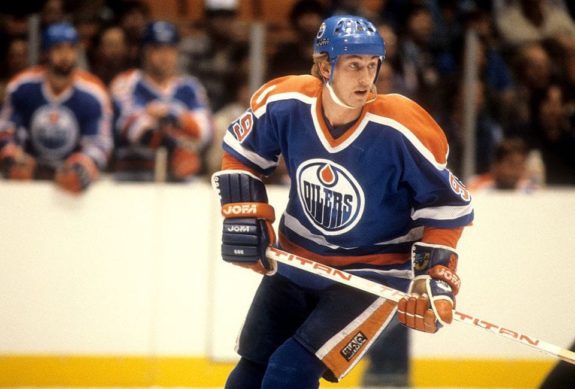
The Great One played in the All-Star Game with three different teams, the Edmonton Oilers (eight times), Los Angeles Kings (seven), and New York Rangers (three). Interestingly, Gretzky’s North American team was victorious in the 1998 and 1999 games, the only times he participated in the global format.
Mark Messier (1979 – 2004)
- Total Games: 15
- West/East Contests: 13 (8 – 5)
Mark Messier remains the only hockey player in NHL history to captain two different franchises to a Stanley Cup championship. Additionally, upon retirement, he was the league’s second-highest scorer, an outstanding accomplishment that resulted in 15 All-Star Game appearances, suitable for a fourth-place tie with Frank Mahovlich. Furthermore, he registered 19 points in those games and ranks fourth with Howe.
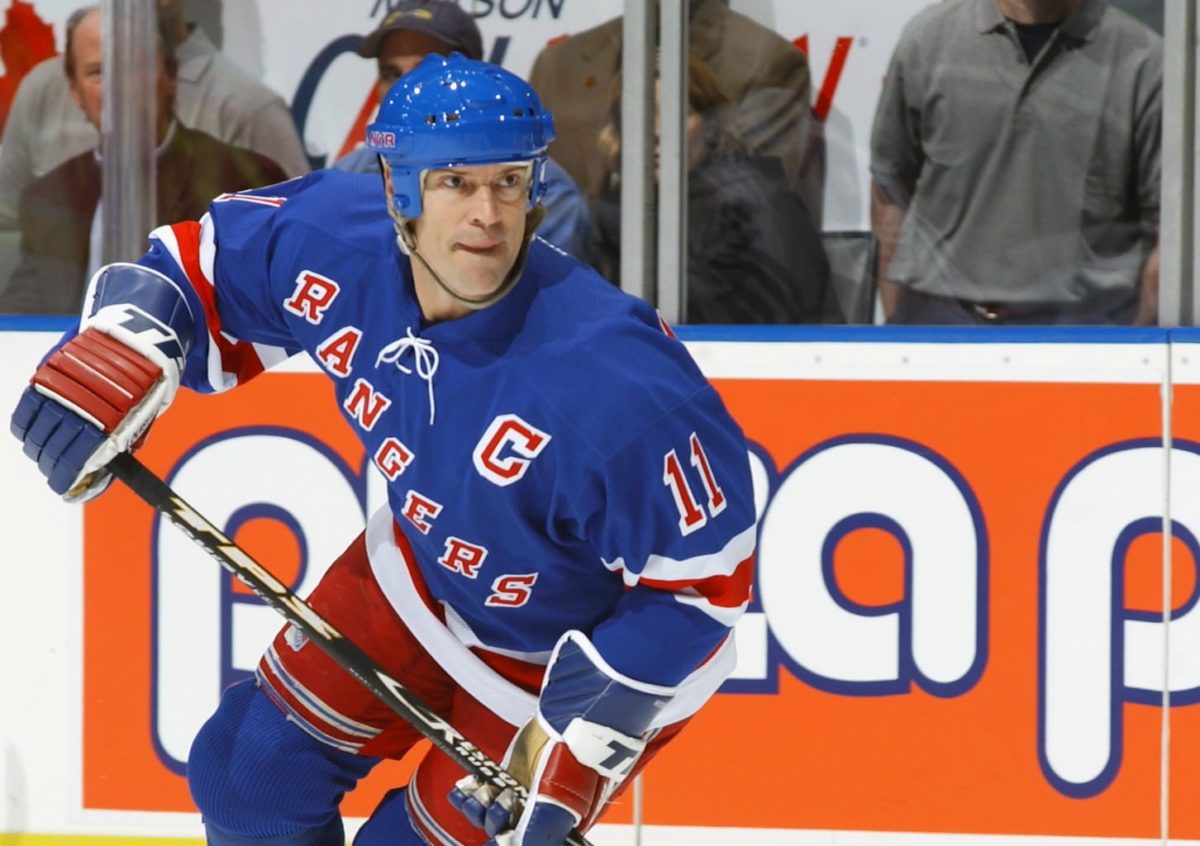
The Moose played in 13 All-Star Games as a member of the Oilers and then five with the Rangers. Lastly, after departing New York in 1998, he played in two events while a member of the Vancouver Canucks during the global format years.
Paul Coffey (1980 – 2001)
- Total Games: 14
- West/East Contests: 14 (8 – 6)
There have been some great defensemen in NHL history, with names like Bobby Orr, Niklas Lidström, Doug Harvey, and Bourque among the all-time greatest. Although Paul Coffey didn’t win as many Norris Trophies as the guys previously mentioned, he was one of the smoothest skating defensemen, gliding up and down the ice with little to no effort. Furthermore, the four-time Stanley Cup champion entered the Hockey Hall of Fame (HHOF) as the league’s second all-time leading scorer amongst defensemen with 1,531 points, only 58 behind Bourque, who finished with 1,579 points.
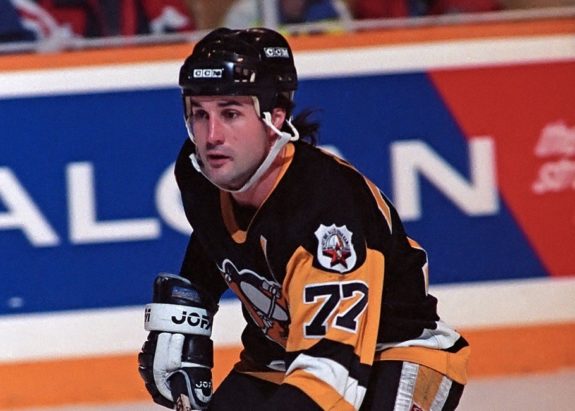
Coffey is one of the most unique All-Star Game participants ever since he played for the Western Conference as a member of the Oilers before playing in the Eastern Conference with the Pittsburgh Penguins. Then, he returned to the West with the Detroit Red Wings, only to finish his All-Star Game career in the East with the Philadelphia Flyers. Furthermore, his 14 appearances at the event rank sixth all-time and second for defensemen.
Scott Stevens (1982 – 2004)
- Total Games: 13
- West/East Contests: 9 (1 – 8)
During his 22-year reign of terror, Scott Stevens was one of the most feared hitters in the game, so anyone who dared to venture into the offensive zone had better brace for impact. After 1,635 games, which ranks 11th all-time, Stevens captained the New Jersey Devils to all three Stanley Cup championships, winning the Conn Smythe Trophy in 2000. Although he never scored more than 78 points in a season and didn’t even crack 1,000 points for his career, he entered the HHOF on the first ballot.
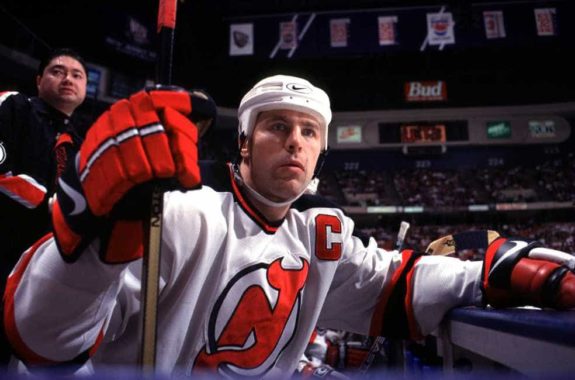
Interestingly, Stevens played in 13 All-Star Games, suiting up for the Washington Capitals on two occasions, then the St. Louis Blues in 1991, the only season he played in the Western Conference. Eventually, he joined the Devils, where he cemented his legacy as a top defenceman, earning six All-Star Game honors. Furthermore, his 13 selections to the mid-season classic are tied for seventh all-time with a list of Original Six icons like Maurice Richard, Doug Harvey, Jean Beliveau, Alex Delvecchio, and Glenn Hall.
Joe Sakic (1988 – 2009)
- Total Games: 12
- West/East Contests: 8 (3 – 5)
Joe Sakic scored 1641 points in his NHL career, winning two Stanley Cups and going into the HHOF in his first year of eligibility. As the current president of the Colorado Avalanche, he’s been a staple with the franchise and community since relocating to Denver with the Quebec Nordiques in 1995. Although he ranks 13th in All-Star Game appearances, he’s scored the third most points at the event with 22, only trailing Gretzky (25) and Mario Lemieux (23).
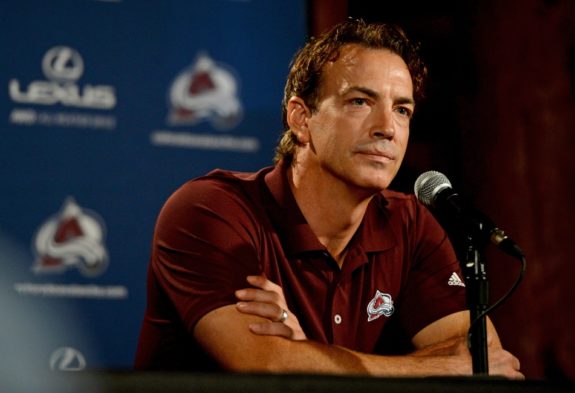
Sakic was a true superstar who played his entire career with one franchise. Moreover, he may have never made this list had the Nordiques not departed the Eastern Conference and gone on to reign over the Western Conference for half a decade. Interestingly, Sakic participated in several global format games while a member of the Avalanche. Overall, he represented the East more often. However, he was most successful while in the West.
Chris Chelios (1983 – 2010)
- Total Games: 11
- West/East Contests: 8 (6 – 2)
Chris Chelios retired after 26 years in the NHL, winning three Stanley Cups and playing in 1,651 games, which ranks ninth all-time. Moreover, when he finished his career in 2010, he had skated in more games than any other defenseman until Zdeno Chara recently passed him in 2022. Interestingly, the three-time Norris Trophy winner is among the few players to win the award in both conferences, once with the Montreal Canadiens and twice with the Chicago Blackhawks. Furthermore, he served as a captain for both Original Six franchises.
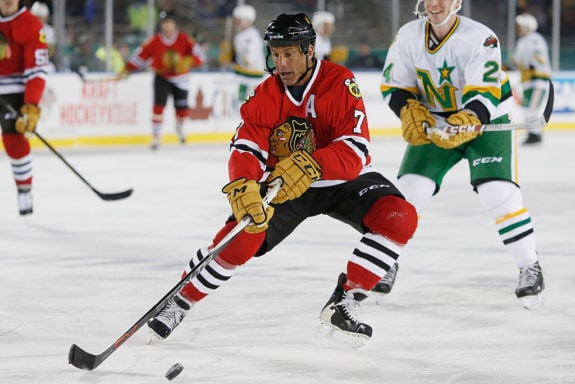
Overall, Chelios played in 11 All-Star Games, missing only two contests during the 1990s. He represented the Canadiens on two occasions and the Blackhawks six times. Additionally, Chelios played for Team North America in the global format during his three final appearances. Nevertheless, although he played in double-digit All-Star Games, he managed to collect only six points.
Patrick Roy (1984 – 2003)
- Total Games: 11
- West/East Contests: 8 (2 – 6)
Patrick Roy retired in 2003. At the time, he was the winningest goalie in NHL history, with 551 wins before Martin Brodeur surpassed him. Considered one of the game’s greatest, he is the only player to win the Conn Smythe Trophy three times as playoff MVP. Furthermore, Roy remains the last goalie to lead the Canadiens to a title in 1993, the last time a team from Canada won the silver chalice. After demanding a trade in 1995, he altered the hockey landscape when he went to the Avalanche and, within a few months, won his third Stanley Cup ring.
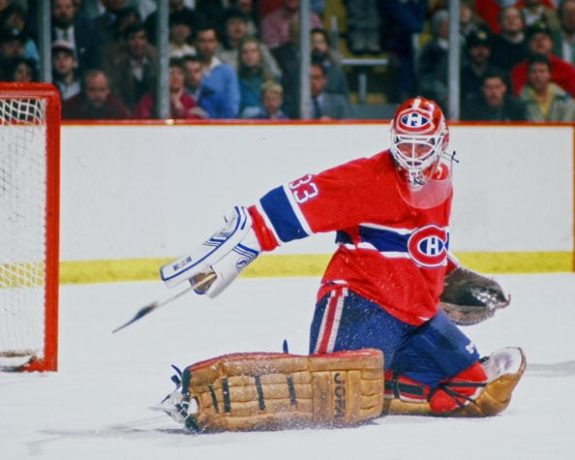
Roy’s 11 All-Star Game appearances are tied with Terry Sawchuk for second place, behind the legendary Glenn Hall, who played in 13. As a member of the Canadiens, he played in six games and then three more as a member of the Avalanche. Additionally, during the years of the global games, he represented Team North America on three occasions.
Jeremy Roenick (1988 – 2009)
- Total Games: 9
- West/East Contests: 6 (4 – 2)
As of 2023, Jeremy Roenick has yet to earn induction into the HHOF, despite being one of the highest-scoring American-born players of all time. The former two-time 50-goal scorer was a young offensive wrecking ball in the 1990s, racking up a handful of seasons with 100 or more points and earning several All-Star Game honors.
After a 20-year career, he stepped away from the game with 1,216 points, which ranks 45th all-time, but fourth amongst American scorers. During his career, Roenick played in nine All-Star Games and scored 11 points while representing the Blackhawks and Flyers.
Mats Sundin (1990 – 2009)
- Total Games: 8
- West/East Contests: 3 (2 – 1)
Mats Sundin played 19 years in the NHL with the Nordiques, Toronto Maple Leafs, and Canucks tallying 1,349 points in 1,346 games, becoming Sweden’s all-time leading scorer. Additionally, he is one of 47 players to score 500 goals, finishing his career with 564. Moreover, he collected 987 points with the Maple Leafs to become their all-time leading scorer. Although Sundin only won a single NHL award during this career, he became a first-ballot HHOFer in 2012.

Interestingly, Sundin only played in the All-Star Game as a member of the Maple Leafs; however, due to realignment, he represented the team in both the Western and Eastern Conferences. See, in 1981, Toronto became a member of the Clarence Campbell Conference (Western) and stayed there until 1998, when they rejoined the Eastern Conference. Consequently, Sundin played for the West in the 1996 and 1997 All-Star Games before getting a chance to represent the East in 2004. Moreover, he played in all five North America vs. World games from 1998 to 2002 and is the eighth-highest-scoring player at the event with 15 points.
Adam Oates (1985 – 2004)
- Total Games: 5
- West/East Contests: 5 (2 – 3)
It took the HHOF eight years to vote in Adam Oates, one of hockey’s most extraordinary assist men. After 19 years in the league, he finished with 1,079 helpers, the eighth-highest total in history, ahead of icons like Howe, Lemieux, and Sakic. Consequently, there is the argument that he significantly impacted two of the game’s most feared snipers, Brett Hull and Cam Neely. Moreover, whether he was dishing passes in St. Louis or Boston, he formed a lethal combination with whoever was on his wing.
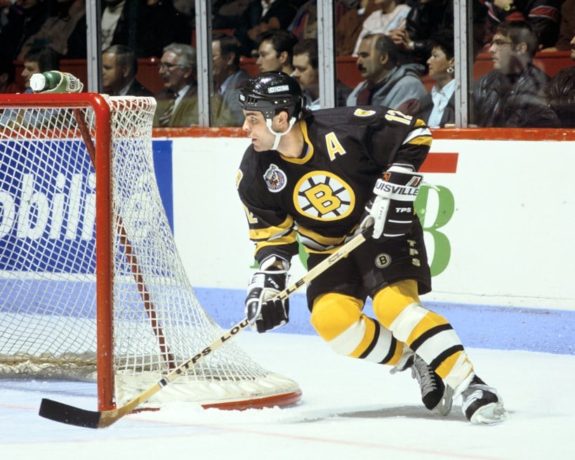
Oates played with seven franchises during his lengthy career. However, he only played in five All-Star Games as a member of the Blues and Boston Bruins. Despite the limited time at the event, his assist total (12) remains the fourth-highest, an honor he shares with Sundin.
All-Star Formats Robbed Legendary Players of the Conference Battles
Unfortunately, many people will want to point out that a player like Bourque played for the Bruins and Avalanche at the All-Star Game, which is an accurate statement. However, while he was a member of the Avalanche, he participated in the global format games, representing Team North America and never experiencing the East vs. West theme.
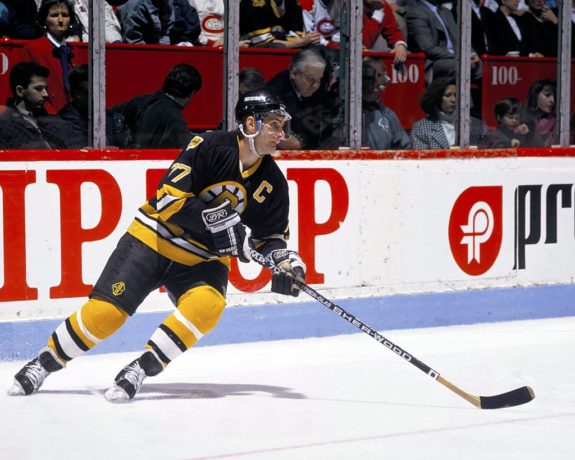
Another player who missed out on the conference battles is Pavel Bure, a six-time All-Star who represented both the Canucks and Panthers. Unfortunately, the times he went as a member of the Panthers, it was during the global format years rather than the regular East vs. West matchups.
Related: Rendez-vous ’87: The Best NHL All-Star Experience
Although the NHL has altered the All-Star Game format a handful of times since its inception in 1947, the best one has been and will always be when the two conferences go head to head, just like the Stanley Cup Final. Moreover, even though there is nothing on the line during these contests, watching East meets West is always fun. Overall, a handful of great, lucky players got to experience both sides of the battle, something many won’t ever get to say.
